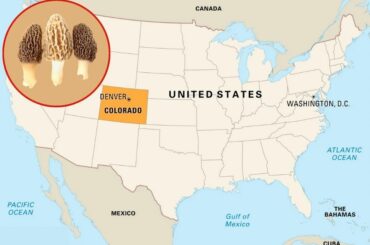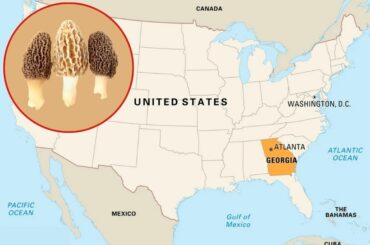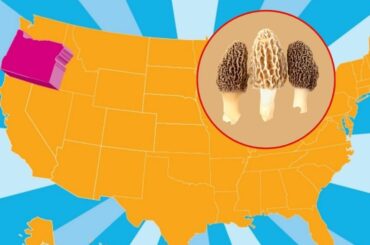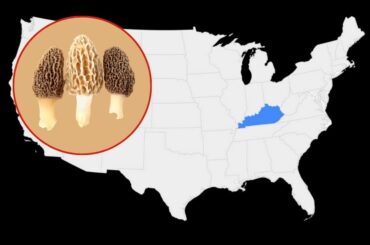Generally, people would like to get rid of mushrooms in their backyards. But, eliminating mushrooms is not as easy as you think. The reason? Mushroom spores. One mushroom can contain spores that are enough to produce many mushrooms. That’s why it is difficult to get rid of them. In this article, you’ll learn what kills mushroom spores.
Although mushroom blooms are eye-catching, they can be a problem when they occur in homes and other buildings. Mushrooms often grow after heavy rainfall or when there are prolonged humid conditions. These organisms can pose a health risk to occupants and pets because of their spores. Some mushrooms are edible, but most species do not produce an edible fruit body and can be poisonous.
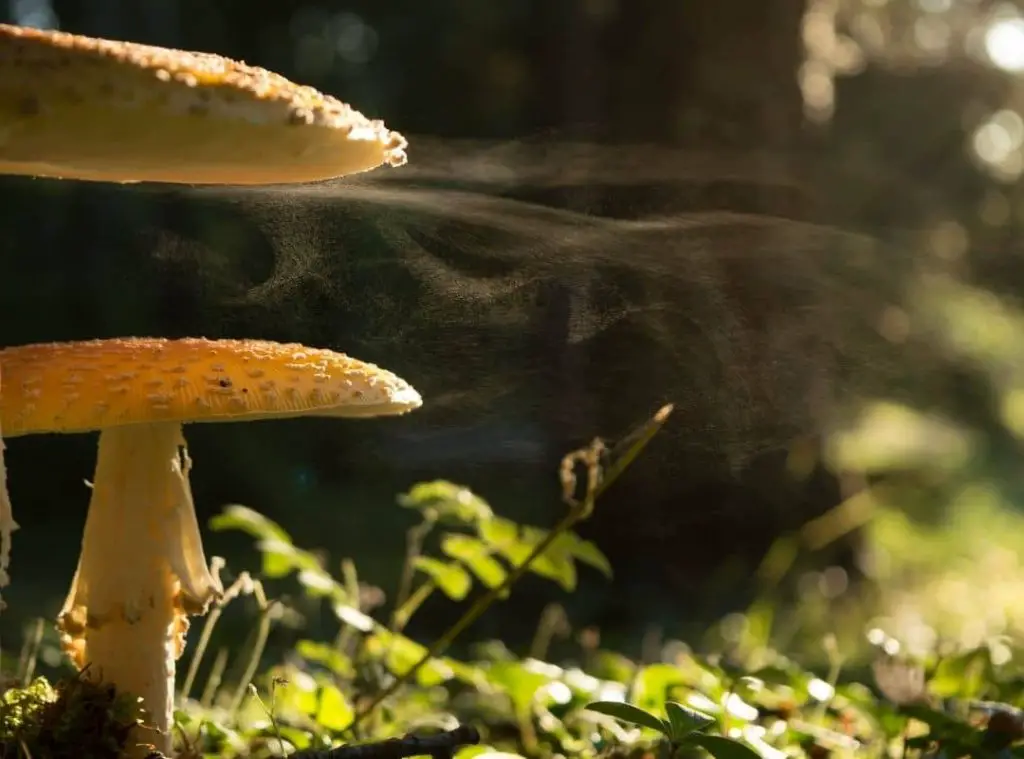
What are mushroom spores?
Contents
Mushroom spores are the reproductive units of mushroom-growing fungi. The spores are spread around by wind and water to grow new organisms. Each mushroom produces thousands of spores inside its fruit body to reproduce its species. When these mushrooms mature, they release these spores naturally, which can germinate in the presence of water and oxygen.
Mushrooms produce spores to increase their population. Some species only need a few weeks to spread their spores and grow a lot of mushrooms.
Spores are tiny particles consisting of dry cells surrounded by a protective layer called a seed coat. When exposed to moisture or water, the seed coat will absorb it. And then, the dry spore cells will swell and germinate into a mass. That’s why; spores are very difficult to kill because it has a strong outer layer that protects the plant cells inside.
Why kill mushroom spores?
Both mushrooms and spores can pose health risks to humans and pets in different ways. Although there are edible mushrooms, most mushrooms are not edible and often poisonous. Moreover, the spores of mushrooms can cause allergic reactions in some people. It causes breathing and skin problems or, even worse, damages internal organs and tissues.
Moreover, it can cause breathing problems like congestion or hay fever. Your pet may aggravate the respiratory tract if they walk on the spores.
Another problem is that it can cause skin irritation, swelling, or other allergic reactions. By removing mushrooms and their spores, you will be able to eliminate the potential health risk to your family and pets.
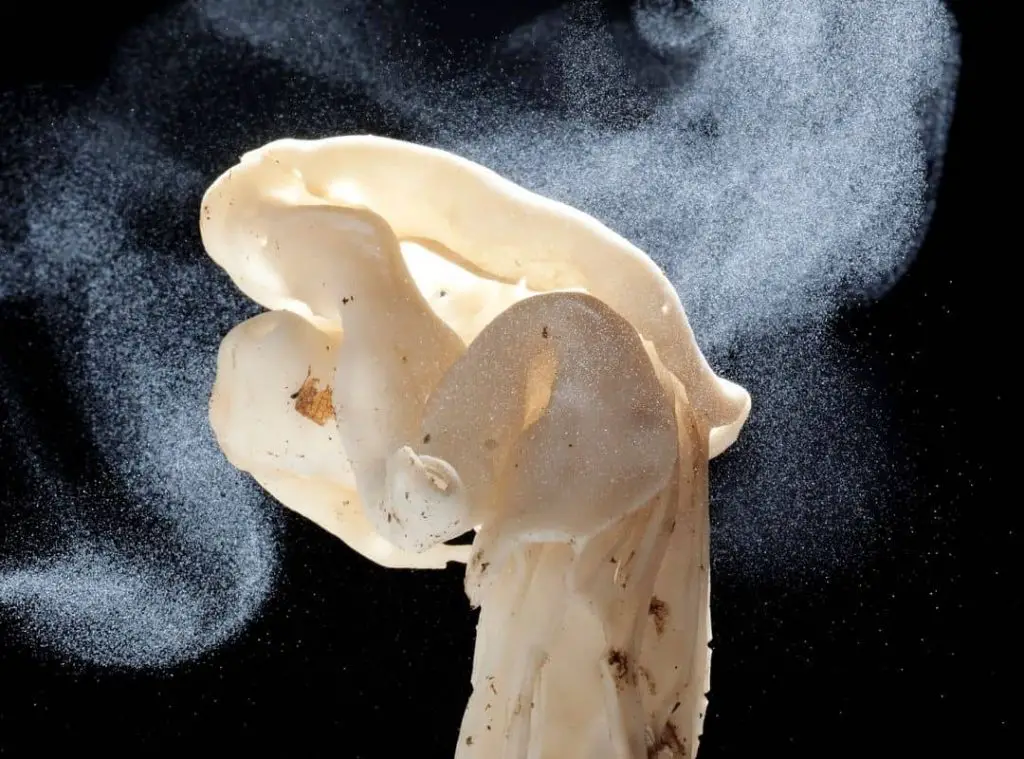
How do you kill mushroom spores indoors?
The truth is there’s no way to kill mushroom spores if they are growing outside. The spores will still be able to reproduce even without the mushroom itself if they are already spread around. But, if you are trying to kill spores in your home or office, there’s no problem at all. As long as the humidity level inside the house is low, fungus spores can not grow. You can use a number of methods to get rid of mushrooms indoors.
Vacuum Cleaning
One of the simplest ways to kill spores is by carefully removing them with a vacuum cleaner. You can use this method to get rid of mushrooms growing on the floor. If you have a pet that sheds hair, regularly vacuuming will surely help you get rid of spores.
Disinfectants
Disinfectants are the best cleaning supplies you can use to kill spores in your house or office. Disinfecting wipes are perfect for surfaces with a lot of spores because they can kill destruction spores at high temperatures. If you have floor tiles with a lot of spores, you can use Lysol or bleach to remove the spores and disinfect the area.
Does UV light kill mushroom spores?
UV light is well known for killing mold, fungus, bacteria, and viruses. So, technically, UV light should be able to kill mushroom spores. But that’s not entirely possible because mushroom spores can spread and stay hidden in places that UV light can not reach.
For example, spores can hide in small nooks and crannies or under a rug. These places are where UV light cannot reach, hence, can not kill spores. Therefore, you should use UV light to prevent spores by using it on flat surfaces.
Does Hydrogen peroxide kill mushroom spores?
Hydrogen peroxides are well known as cleaning supplies to kill mold and bacteria, but it’s not recommended to use hydrogen peroxide to kill spores because it can damage surrounding areas. Hydrogen peroxide is an oxidizer that has a positive electrical charge. Therefore, negatively charged spores will become positively charged after coming into contact with hydrogen peroxide. This can cause spores to reproduce, which is not what you want to happen.
Does alcohol kill mushroom spores?
Alcohol can actually kill mushroom spores if used in large amounts. For this, you have to soak the surface with alcohol and let it remain for several minutes. It wouldn’t work if you just wipe the surface and let it dry immediately. Anyhow, some mushroom spores are tougher than others. So, this method might not work with tougher mushroom spores.
Does freezing kill mushroom spores?
Freezing can kill spores, but only when you completely freeze the spores. For example, if your freezer can reach -2 degrees Celsius or 28 degrees Fahrenheit, it will kill most spores. However, you should keep in mind that spores can survive the candlelike cold, much like bacteria and some types of viruses. Further, some mushroom species are more resistant to coldness, so this method might not work with them.
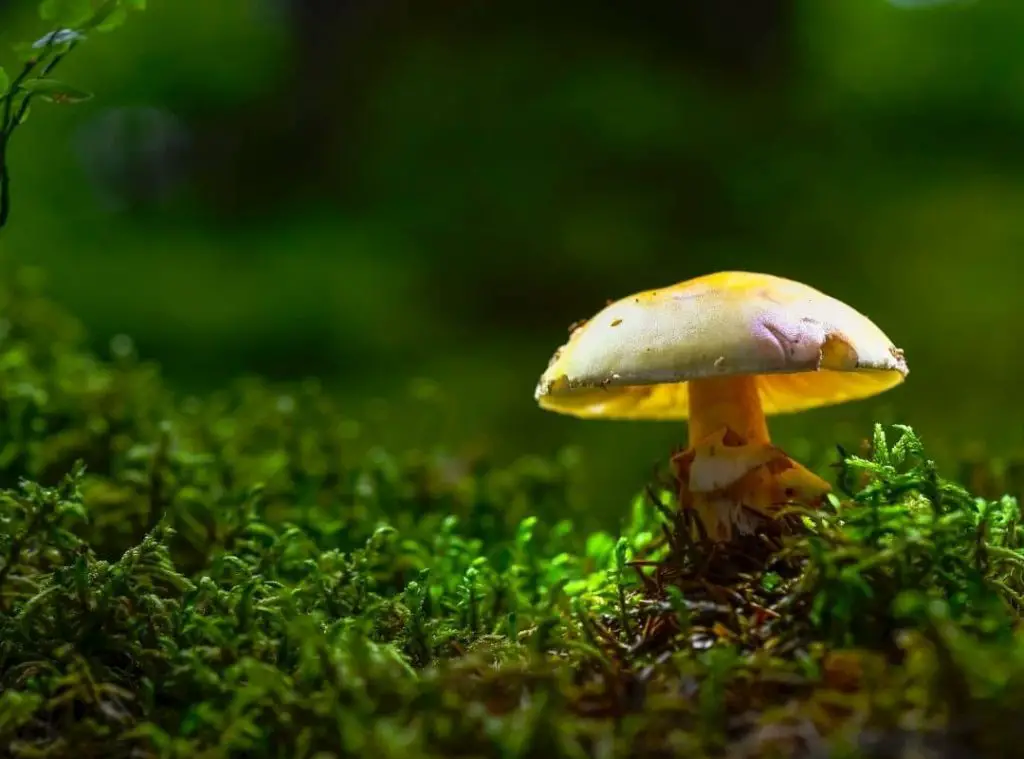
Does vinegar kill mushroom spores?
Vinegar has an acetic acid known for killing spores and bacteria. Vinegar is an acid that has a negative electrical charge. Therefore, positively charged spores will become neutral after coming into contact with vinegar. When this happens, spores can not reproduce anymore. Vinegar works best when mixed with water. You have to mix water and vinegar in a 1:4 ratio and soak/ spray the surface with it to kill spores completely.
Does heat kill mushroom spores?
Mushrooms are sensitive to heat, but their spores can withstand it for a short time. Once spores are exposed to heat for long periods of time, like over ten minutes, spores will dry out. When this happens, spores can not reproduce anymore. To kill spores using heat, you have to make sure the temperature is at least 100 degrees Celsius or 212 degrees Fahrenheit.
Does salt kill mushroom spores?
Salt is among the most efficient methods to kill spores completely. Salt has an ionic charge that makes spores unable to reproduce anymore. Deionization happens when spores come into contact with salt, and it leaves spores unable to reproduce.
Since salt is a natural ingredient, it will not harm your surfaces like chemicals. You also won’t have to dig all over your yard plucking mushrooms. You have to use a salt solution made of table salt and water. You can mix roughly 1/8 cup of table salt with 1 liter of water to make the solution. You have to soak the surface with salt water and let it remain for several minutes, or you can just brush salt on the surface.
Does chlorine kill mushroom spores?
While some mushroom types destroy by chlorine water, most do not. Most mushroom types can withstand chlorine, making it unfeasible as a method to kill spores. You also can’t use bleach since it might damage surrounding areas.
Does soap kill mushroom spores?
Some spores are sensitive to soap, but it’s not very efficient. Many mushroom types are resistant to soap, and it might not be a very efficient method to kill spores. Spores will easily survive and reproduce after coming into contact with soap water, so don’t use it. However, you can kill mushrooms with soap.
Does Ammonia kill mushroom spores?
Ammonia is toxic to many fungi types. This includes most mushrooms. So, Ammonia can be used to kill most mushroom spores. However, some Ammonia tolerant mushrooms can withstand high levels of Ammonia, such as Hebeloma aminophilum. So, if you’ve got Ammonia-tolerant mushrooms in your yard, this method might not work.
Does bleach kill mushroom spores?
Bleach can kill mushrooms most of the time, but not the spores. Bleach has a high level of toxicity and is efficient in its own ways. But even though bleach might kill mushrooms, it will not be as effective as using salt or fungicides.
Does Lysol kill mushroom spores?
Lysol is a disinfectant and is efficient in killing spores and bacteria. Lysol is a good option to kill spores, but it might damage your surroundings, so be careful when using this method. Lysol is supposed to use on surfaces and not on soil or other surfaces. If used on organic surfaces, it might kill soil bacteria and plants.
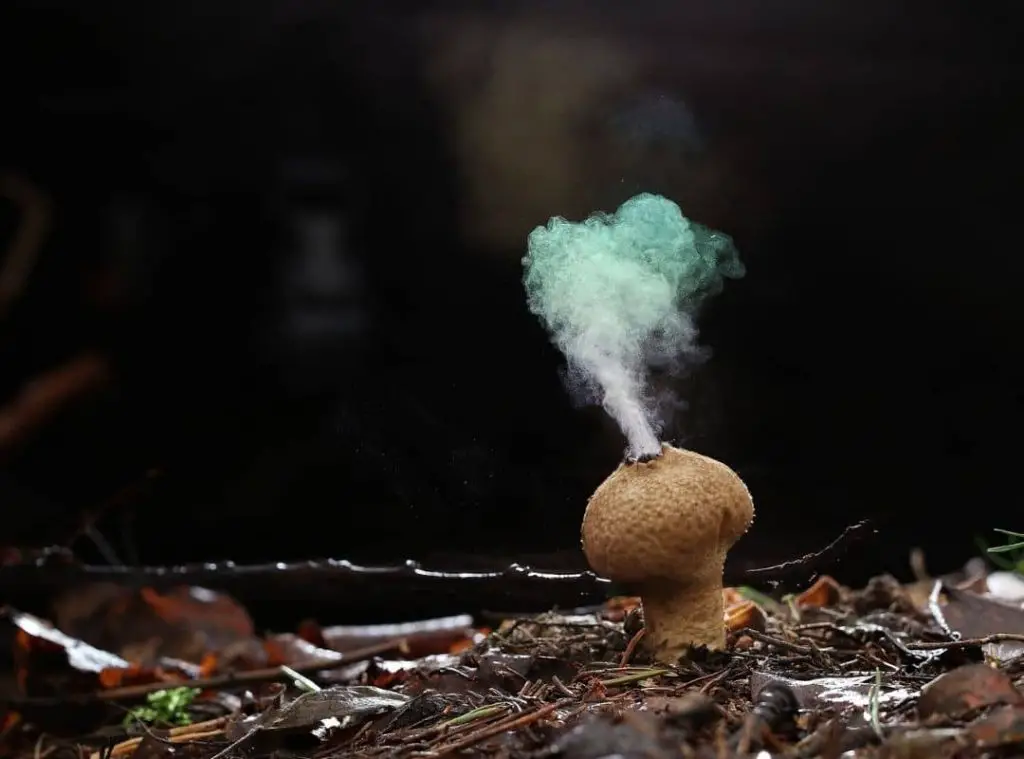
Do fungicides kill mushroom spores?
Fungicides are an efficient method to kill spores. However, fungicides are toxic, so be careful when using them. If you have plants that are sensitive to fungicides, avoid using them. In this case, it is better to use natural ingredients like salt and vinegar.
How to kill mushroom spores in my yard?
Unfortunately, you can’t kill spores in your yard with the methods mentioned above. Spores are very difficult to get rid of in an outdoor area because the spores are spread around by wind and water. People love to grow plants in their yards, but they can easily absorb mushroom spores from the ground and spread them around. There are three common methods to kill mushroom spores at home.
Method 1:
Get rid of the root cause of mushroom growth Mushrooms usually grow when there is a warm, humid area with lots of organic matter. So, if you want to get rid of mushrooms in your yard, you should first get rid of these conditions. Removing organic matter like dead leaves, tree roots, and branches will make it easier for you to remove the root cause of the mushroom growth.
Method 2:
Using fungicides to kill spores There are several types of fungicides that you can use to kill spores in your yard. You can find fungicides in most hardware stores and gardening centers, but it’s essential to use the right fungicide with the right amount. Most fungicides are not meant to get rid of spores in the air as Lysol or bleach do. So, if you want to get rid of spores in your yard, you can use a fungicide to kill the mushroom growth. However, misusing a fungicide might cause damage to your plants.
Method 3:
Using baking soda solution to kill spores. If you don’t want to use chemicals or don’t know how to apply fungicides, another method works the same as fungicides; baking soda. Baking soda can lower the pH level and kill spores very quickly. Because baking soda is an acid, it has a negative electrical charge. Therefore, positively charged spores will become neutral after coming into contact with the baking soda solution. When this happens, spores can not reproduce anymore.
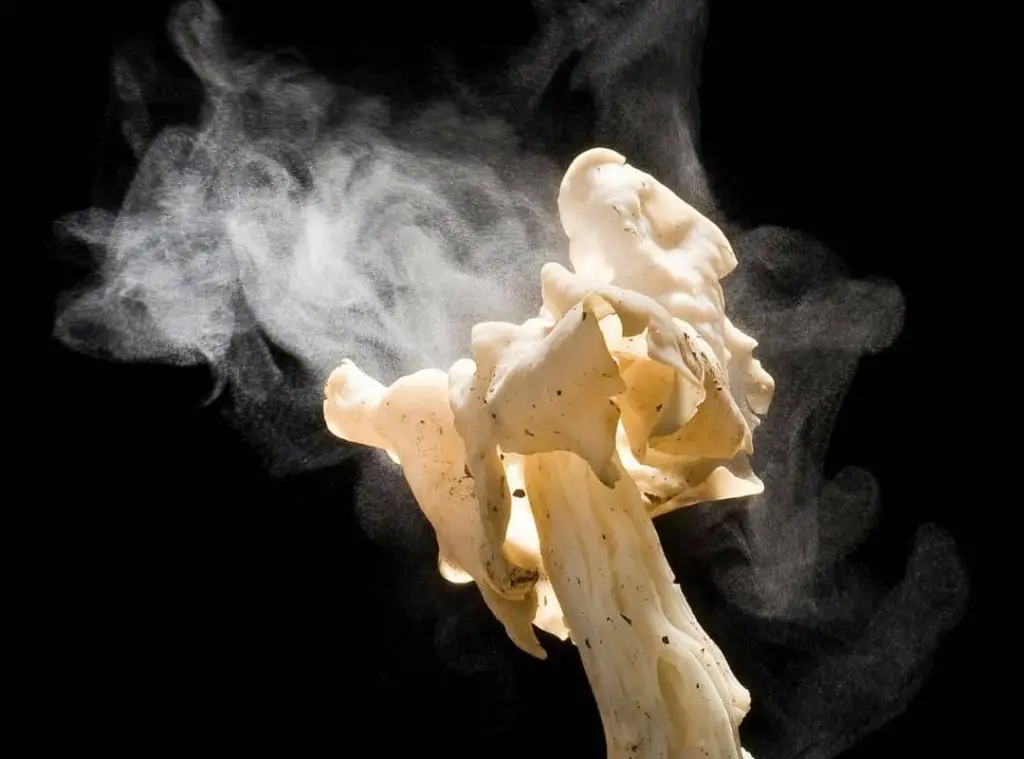
How do you get rid of mushroom spores?
While you can control mushroom growth in your yard, you can not get rid of mushrooms ultimately because new mushroom spores can always come from surrounding areas. But if you want to control mushroom growth, it is good not to use soil that contains fungi and mushroom spores. For this, you can simply mix salt with the soil so that the remaining fungi and spores can not reproduce anymore.
Safety Measures
Chemical products like fungicides, chlorine, and Lysol contains toxic ingredients for humans. So, you should avoid contact with fungicides, Lysol, and chlorine to prevent health problems. Especially keep these products away from children and animals. Further, follow safety measures such as using gloves when handling these chemicals.
Safety Tips
You should not use any chemical substances to destroy spores in a place where children and animals can access them, such as your yard or public parks. Mixing salt with soil will not completely destroy spores, but it is an excellent way to stop fungi and mushroom growth. Do not use fungicides and chlorine on organic surfaces like soil where plants and vegetables grow. Instead, choose more natural options like salt and vinegar to destroy spores.
Conclusion
There are several methods you can use to kill spores in your yard, but it’s essential to choose the right method for your situation so you can prevent damage to surrounding areas and contact with harmful substances. You should not rely completely on one product or method to get rid of spores. In most cases, it is a combination of two or three methods that will be more efficient and safe to use.
Read Next : Do Mushroom Spores Need Light? Mystery Reveled!

